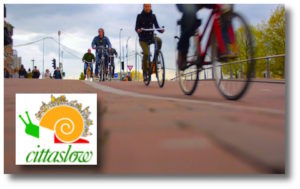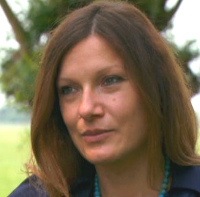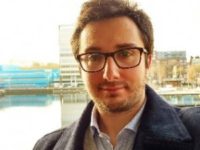Please be aware that this event was postponed. We will inform you about the new date.
We are sorry for any inconvenience caused.
June 13, 2017. In collaboration with the Italian Cultural Institute in Amsterdam.
This meeting will be split into two parts. The first part will introduce us to the Italian experience and in particular to the effective CittàSlow model. In the second part, we will talk about the use of bicycles and analyze its related benefits with an eye to the relevant Dutch experience.

We will begin describing a knowledge and technology transfer from Italy to the Netherlands by analyzing the CittàSlow (or ‘Slow-City’) model, a spin off of the Slow-Food movement. The Mayor of Midden-Delfland, A.J. Rodenburg, will introduce us to the topic with a brief presentation of his personal experience of this Italian model. Then, we’ll move to another project that implemented the Slow-City criteria: this was executed in the Dutch municipality of Alphen-Chaam by Claudia Basta as the supervisor of university students who performed a research work in the context of the Spatial planning and landscape design course at the Wageningen University (WUR). Claudia will illustrate the most significant aspects of this project highlighting how it was welcomed in the Netherlands and then relocated to the municipality of Midden-Delfland, which has now assumed the role of “Dutch capital of the international Slow-City movement”, thanks to the opening of the local administration and the attention obtained by the Dutch national media around the city network.
In the second part of this interesting conference, we will tackle the topic of cycling mobility in the Netherlands, trying to overcome the clichés that in other countries like Italy currently limit the investment in this transport system. Do the Dutch people cycle for a purely cultural question? Are they cycling because there is a dedicated infrastructure or because they do not own cars? Is the particular topographic design (the lack of hills, for example) what makes the difference? In this presentation Paolo Ruffino will address all of these questions and more, illustrating how the factors contributing to the massive cycling in The Netherlands are much more multi-shaped and complex than we think. Starting with an historical excursus, Paolo will finally come to what Italy and other countries can learn from the Dutch experience and what the economic benefits of a widespread use of bicycles can be, also highlighting some Italian projects that are emerging as a result of this technology transfer from The Netherlands to Italy.

 Claudia Basta is a researcher at the Dutch Environmental Assessment Agency (PBL, The Hague), the scientific body of the Ministry of Environment responsible for conducting independent research on strategic themes relevant to policy-making (from urban sustainability to climate change and mobility). As member of the Quality of the Environment Sector (ROL), Claudia advances research on urban sustainability in relation to themes lying at the intersection of knowledge-production (with a focus on new methodologies) and policy-making (with a focus on competitive ethical frameworks).
Claudia Basta is a researcher at the Dutch Environmental Assessment Agency (PBL, The Hague), the scientific body of the Ministry of Environment responsible for conducting independent research on strategic themes relevant to policy-making (from urban sustainability to climate change and mobility). As member of the Quality of the Environment Sector (ROL), Claudia advances research on urban sustainability in relation to themes lying at the intersection of knowledge-production (with a focus on new methodologies) and policy-making (with a focus on competitive ethical frameworks). Paolo Ruffino is a strategic transport planner and consultant at DECISIO (Amsterdam). DECISIO is one of the main economic and research companies in The Netherlands that focuses on “Bikenomics” and on the evaluation of spatial / transport planning policies from a socio-economic point of view. Originally from Turin, Paolo moved to the Netherlands in 2013 to study two Master’s degrees in Sustainable Development (Utrecht University) and in Urban and Regional Planning (University of Amsterdam). Among his experiences, Paolo has worked for the City Region of Amsterdam (now Transport Region), the Netherlands’ Ministry of Infrastructure and the Environment, the Federal Highway Administration (United States), and in several European projects. Paolo is passionate about urban sustainability, cycling and planning and works actively to effectively transfer knowledge and best practices from the Netherlands to Italy, and back.
Paolo Ruffino is a strategic transport planner and consultant at DECISIO (Amsterdam). DECISIO is one of the main economic and research companies in The Netherlands that focuses on “Bikenomics” and on the evaluation of spatial / transport planning policies from a socio-economic point of view. Originally from Turin, Paolo moved to the Netherlands in 2013 to study two Master’s degrees in Sustainable Development (Utrecht University) and in Urban and Regional Planning (University of Amsterdam). Among his experiences, Paolo has worked for the City Region of Amsterdam (now Transport Region), the Netherlands’ Ministry of Infrastructure and the Environment, the Federal Highway Administration (United States), and in several European projects. Paolo is passionate about urban sustainability, cycling and planning and works actively to effectively transfer knowledge and best practices from the Netherlands to Italy, and back.